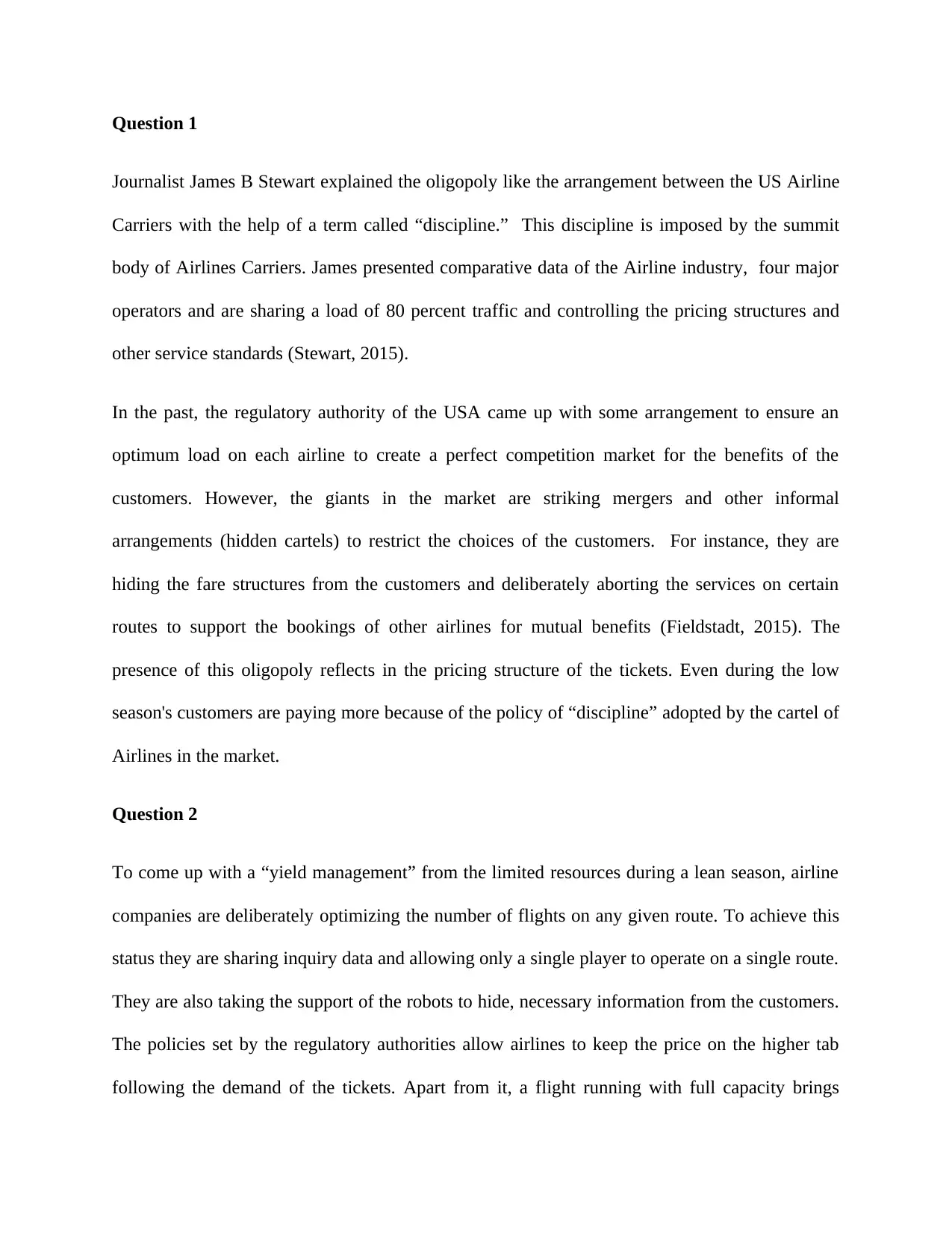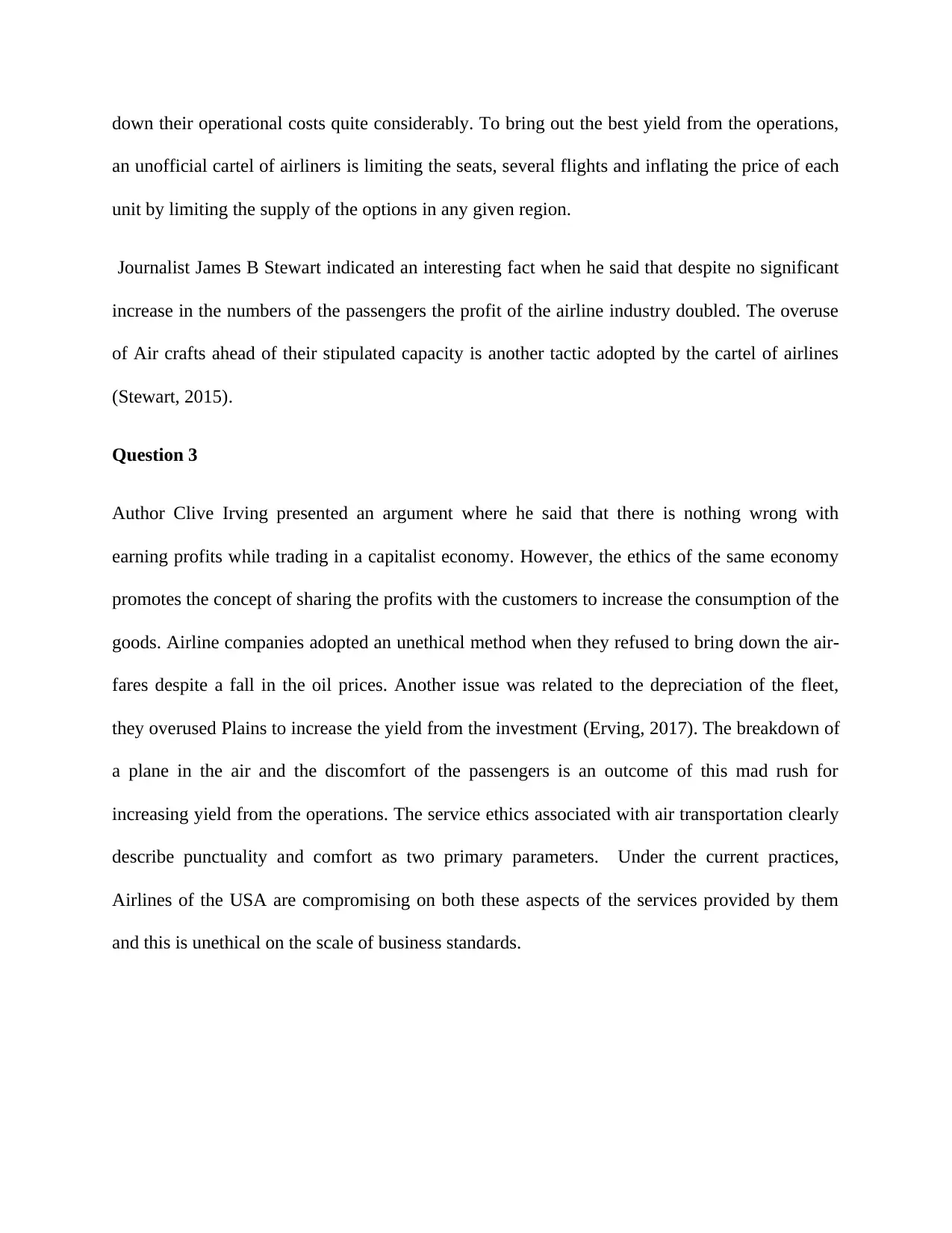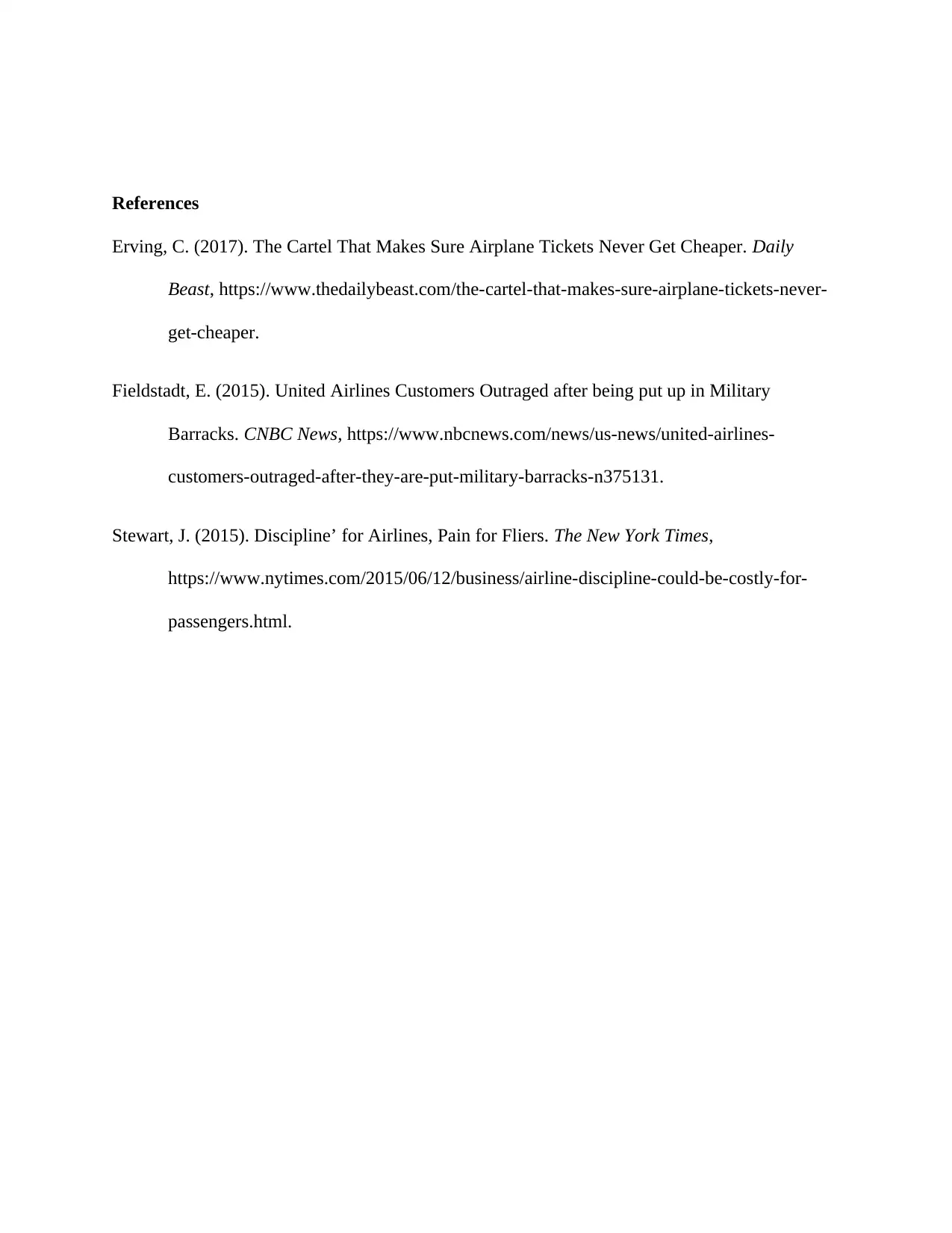MBA 525 Spring 2020 Final Take Home Exam: Airline Industry Analysis
VerifiedAdded on 2022/07/29
|3
|687
|26
Homework Assignment
AI Summary
This assignment analyzes the airline industry through the lens of managerial economics, focusing on the oligopolistic structure and its impact on consumers. It examines how major airline carriers exert control over pricing and service standards, often through informal agreements and yield management strategies. The assignment explores how airlines optimize flight numbers and share data to maximize profits, even during lean seasons. It also delves into the ethical implications of airline practices, such as refusing to lower fares despite falling oil prices and overusing aircraft, potentially compromising passenger comfort and safety. The analysis draws on insights from journalists James B. Stewart and Clive Irving, highlighting the tension between profit maximization and ethical business practices within the airline industry.
1 out of 3




![[object Object]](/_next/static/media/star-bottom.7253800d.svg)